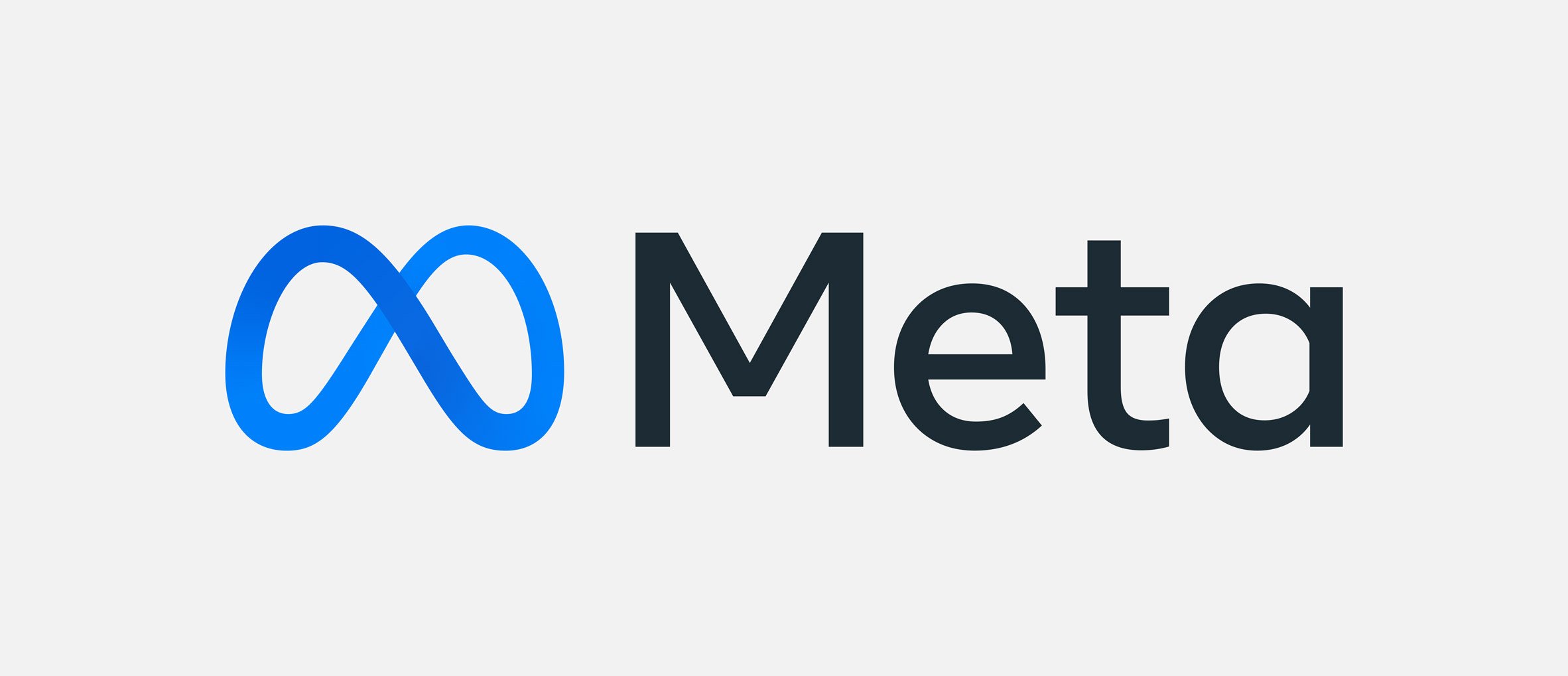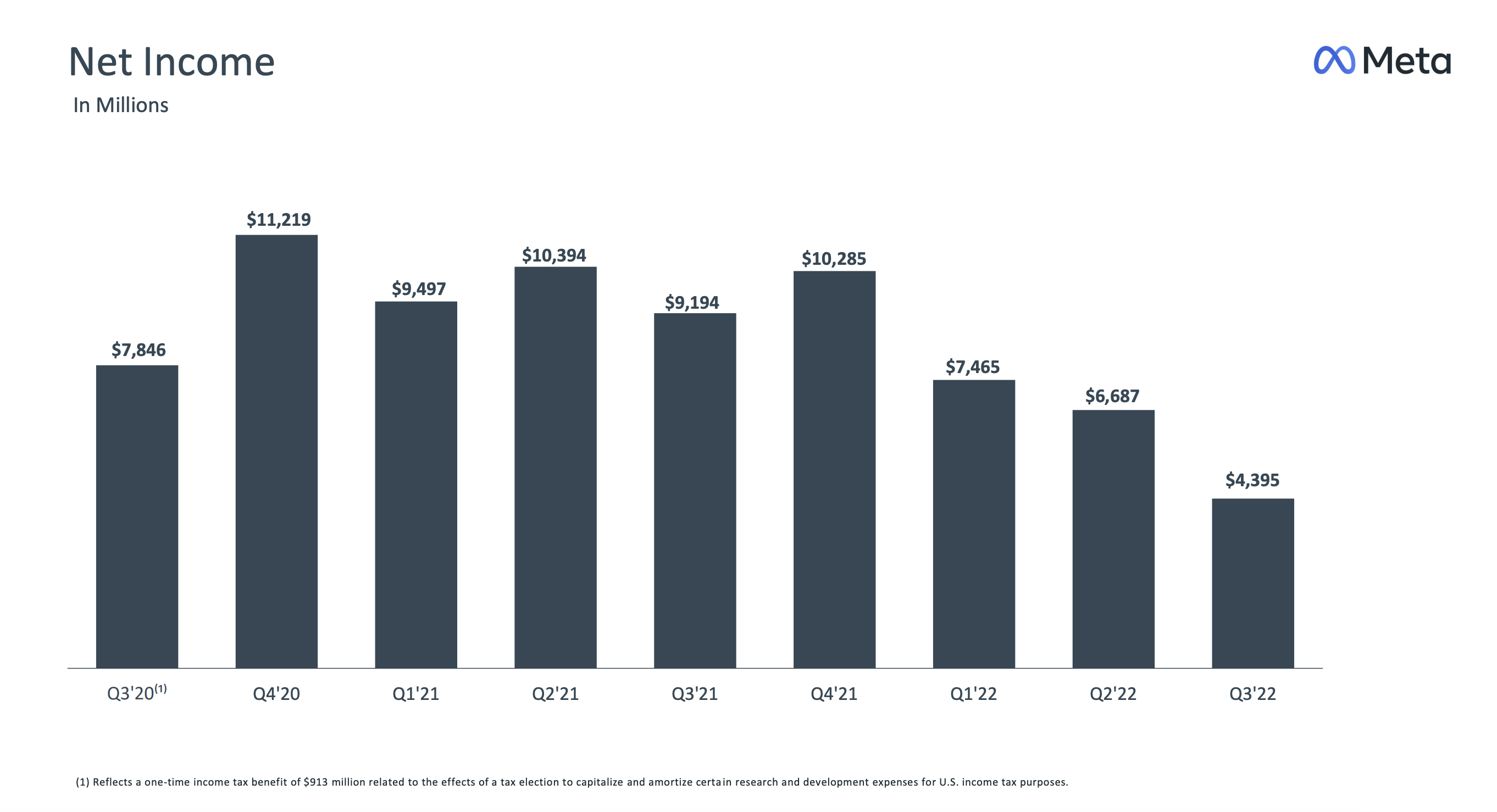
Meta’s Revival which was formerly known as Facebook, has been suffering in recent yearsThe firm has seen diminishing user growth and increased competition from rivals such as TikTok. Meta, on the other hand, has exhibited indications of resurgence in recent months. The company’s sales increased by 11% year on year in the first quarter of 2023. This was the company’s first revenue increase in two years.
Meta’s resurgence has been aided by several things. First, the corporation has made significant investments in new goods and features such as Reels and Horizon Worlds. These products have aided in attracting new users and retaining existing ones. Second, Meta has made strides in its metaverse endeavors. The corporation has been investing in virtual and augmented reality technology, and it recently announced plans to construct a new metaverse research facility in Paris.
The resurgence of Meta is excellent news for both investors and users. The firm is still the world’s largest social media platform, and it has the potential to become much more successful in the coming years.
What is Meta?

Facebook, Inc.’s new name is Meta. The firm owns Facebook, Instagram, WhatsApp, and other social media sites. The name change was announced in October 2021, and it represents the company’s focus on the metaverse, which is a postulated iteration of the internet as a unified, global, and immersive virtual environment made possible by the usage of virtual reality and augmented reality headsets.
The term “meta” is derived from the Greek word “,” which means “beyond.” It refers to a virtual world that exists beyond the existing state of the internet in the context of the metaverse. The metaverse is still in its infancy, but it has the potential to be a significant new platform for social interaction, business, and entertainment.
Meta is significantly investing in the metaverse, and it has already achieved great progress. The business has invented many virtual reality and augmented reality headsets, as well as virtual worlds that may be accessed via these headsets. Meta is also working on tools and infrastructure that will make it easier for individuals to generate and distribute metaverse content.
The metaverse is still a long way off, but Meta is determined to make it a reality. The firm thinks that the metaverse has the potential to transform the way we live, work, and play, and it is committed to being a leader in this emerging technology.
The Journey of Meta
Meta’s adventure began with the launch of Facebook, which swiftly grew in popularity and became one of the world’s most influential social networking sites. The company’s portfolio has grown over time, with acquisitions including Instagram, WhatsApp, and Oculus VR. This buying binge underlined Meta’s desire to be more than a social networking platform.
Meta Platforms, formerly known as Facebook, is a social media and technology firm that has expanded rapidly since its inception in 2004.
Here are some significant junctures in the company’s history:
- 2004: Mark Zuckerberg and fellow Harvard University classmates co-found Facebook. Initially restricted to Harvard students, the website quickly extended to other campuses and, eventually, became open to everyone with an email account.
- 2006: Facebook debuts the News Feed, a feature that allows users to see updates from their friends as well as other pages they follow in a single stream.
- 2007: Zuckerberg becomes a billionaire when Facebook goes public.
- 2008: The Facebook Platform is launched, allowing developers to create third-party applications that run on the Facebook website.
- 2010: Instagram, a photo-sharing program, is acquired by Facebook.
- 2011: WhatsApp, a mobile messaging program, has been acquired by Facebook.
- 2012: Facebook introduces the Timeline function, which allows users to build a chronological picture of their Facebook life.
- 2014: Facebook acquired the virtual reality business Oculus VR.
- 2016: Facebook introduces the Messenger app, which allows users to communicate with one another without needing to be on Facebook.
- 2017: Facebook introduces the React Native framework, which enables developers to create mobile apps that function on both iOS and Android devices.
- 2018: Facebook introduces the Portal video conferencing gadget.
- 2021: Facebook rebrands as a Meta Platform and declares a focus on the metaverse.
In recent years, meta platforms have experienced several issues, including falling user growth, increased competition, and governmental scrutiny. Nonetheless, the corporation remains one of the world’s most powerful and important technological companies. It will be fascinating to observe how Meta Platforms manage future issues while continuing to expand and develop.
Read More: From Facebook To Meta: The Journey Of Meta Platforms
The Reinvention of Meta
Realizing the metaverse’s potential, Meta undertook a massive redesign in 2021. Mark Zuckerberg revealed the company’s new name and emphasis on developing the next generation of internet services based on the metaverse. The goal of this change was to match the organization with cutting-edge technology such as augmented reality (AR) and virtual reality (VR).
Facebook stated in October 2021 that it will change its name to Meta Platforms. According to the firm, the name change reflects its focus on the metaverse, a postulated iteration of the internet as a single, ubiquitous, and immersive virtual environment made possible by the usage of virtual reality and augmented reality headsets.
The name change elicited mixed reactions. Some complimented the corporation for its foresight, while others condemned it for being a diversion from the company’s present issues.
There is little doubt, however, that the metaverse is a primary priority for Meta. The corporation has made significant investments in virtual reality and augmented reality technology, as well as in the creation of various virtual worlds that can be accessed via these headsets. Meta is also working on tools and infrastructure that will make it easier for individuals to generate and distribute metaverse content.
It is too soon to tell if the metaverse will be a success. However, Meta is placing a large bet on this technology, which is expected to play a significant part in the company’s future.
Some of the reasons Meta is reinventing itself are as follows:
- To focus on the metaverse: The metaverse is a new and developing technology with the potential to change how we interact with the internet. Meta is investing big in the metaverse, believing that it will be the future of social media.
- To address its current problems: In recent years, Meta has faced several issues, including falling user growth, increased competition, and governmental attention. The corporation is hoping that the metaverse would assist it in overcoming these obstacles and resuming its growing pace.
- To stay ahead of the competition: Other computer behemoths, such as Microsoft and Google, are also putting money into the metaverse. To keep ahead of the competition and preserve its leadership position in the social media sector, Meta must reinvent itself.
Meta’s reinvention is a risk, but it might pay out handsomely if the firm succeeds. The metaverse is an exciting new technology that has the potential to transform the way we live, work, and play. If Meta is successful in developing the metaverse, it will be well-positioned to lead the internet’s new era.
Read More: An Eye-Opening Revelation for Advertisers: Uncovering the #DeleteTwitter Storm
The Impact of Meta’s Revival on Revenue

The company’s revenue has increased as a result of Meta’s rebirth. Meta’s sales increased by 11% year on year in the first quarter of 2023, marking the company’s first revenue increase in two years.
Several causes contributed to its expansion, including:
- Increased user engagement: Users are spending more time on Meta’s platforms, resulting in more ad impressions and clicks.
- Strong advertising revenue: In the first quarter of 2023, Meta’s advertising income increased by 17% year on year. This expansion was fueled by the high demand for digital advertising as well as Meta’s attempts to improve ad targeting and measurement.
- New products and features: In recent months, Meta has introduced various new products and services, including Reels and Horizon Worlds. These products have aided in attracting new users and retaining existing ones.
Meta’s comeback is excellent news for the company’s investors. The stock price of the firm has climbed dramatically in recent months, and it now trades at a premium to its rivals. This indicates that investors are optimistic about Meta’s future growth possibilities.
It is crucial to note, however, that Meta’s rebirth is still in its early phases. The firm is experiencing several hurdles, including increased competition from rivals such as TikTok and regulatory scrutiny. It is too soon to tell if Meta will be able to maintain its present growth rate.
Overall, the revenue impact of Meta’s rebirth has been good. In recent months, the company’s sales growth has increased, and its stock price has climbed dramatically. It is crucial to highlight, however, that Meta’s rebirth is still in its early stages, and the firm is confronting several hurdles.
Key Strategies Behind Meta’s Success

Several major methods have contributed to Meta’s post-revival success. To begin, the corporation has prioritized innovation and substantially invested in research and development. This has resulted in the development of cutting-edge technology and user-centric features that have captivated a larger audience.
Several major methods have contributed to Meta’s success, including:
- Focus on user engagement: Meta has always prioritized user engagement, which has been a primary driver of its success. This has been accomplished through ongoing innovation and the addition of new features to the company’s platforms. For example, the launch of the News Feed in 2006 was a watershed moment for Facebook since it allowed users to see what their friends were up to in real-time.
- Acquisitions: Meta has also been successful in acquiring related product and service firms. For example, Meta acquired Instagram in 2012, giving it a popular photo-sharing platform, and WhatsApp in 2014, giving it a major messaging service.
- Advertising: The majority of Meta’s revenue comes from advertising. The firm has had great success in targeting adverts to its customers, which has contributed to its income growth. Meta’s advertising platform is one of the most advanced in the world, allowing firms to precisely contact their target demographic.
- International expansion: Meta has also been effective in broadening its worldwide presence. The firm now has users in over 180 countries, which has contributed to its rapid expansion. Several factors have fueled Meta’s international expansion, including the proliferation of the Internet in emerging economies and the rising popularity of its platforms among young people.
These are only a few of the important techniques that have contributed to Meta’s success. The corporation has been exceptionally successful in implementing these methods, which has allowed it to become one of the world’s most valuable technological companies.
Meta’s Approach to User Engagement
Meta’s user engagement strategy has been built on personalization and immersive experiences. Meta’s platforms provide personalized content and suggestions by exploiting user data and preferences, resulting in deeper user engagement and longer sessions.
Meta’s user engagement strategy is founded on the following principles:
- Make it simple for people to stay in touch with their friends and family. Meta’s platforms are meant to help users keep in touch with the people they care about. This is accomplished through features such as the News Feed, which displays updates from friends and other pages users follow, and the Messenger app, which allows users to speak in real-time.
- Provide a range of materials for consumers to consume. Meta’s platforms provide a diverse range of material, such as news, images, videos, and status updates. This diversity keeps people interested and returning for more.
- Customize the user experience. Meta’s platforms leverage data to customize the user experience. This implies that users are more likely to engage with information that is relevant to their interests.
- Make it simple for people to express their ideas and opinions. Meta’s platforms enable people to easily communicate their thoughts and opinions with the rest of the world. This is accomplished through features such as the News Feed, which enables users to exchange status updates and images, and the Groups feature, which enables users to join groups of individuals who have similar interests.
Meta’s user engagement strategy has been successful in keeping people interested in its platforms. The company’s platforms are among the most popular in the world, with billions of people using them every day.
Meta’s Contribution to the Digital Economy
The extension of Meta into numerous digital domains has made a substantial contribution to the digital economy. The company’s platforms have made it easier for businesses to reach their target audiences, and its advertising capabilities have proven to be extremely successful for firms trying to boost their online presence.
In a variety of ways, Meta has made substantial contributions to the digital economy, including:
- Creating jobs: Meta employs nearly 70,000 people globally, with professions ranging from engineering to sales, marketing, and customer service.
- Generating revenue: Every year, Meta earns billions of dollars in revenue, which is used to maintain the company’s operations and to invest in new goods and services.
- Driving economic growth: By linking companies with customers and providing a platform for enterprises to sell their products and services, Meta’s platforms foster economic growth.
- Empowering entrepreneurs: By linking companies with customers and providing a platform for enterprises to sell their products and services, Meta’s platforms help foster economic growth.
- Promoting digital literacy: Meta’s platforms encourage digital literacy by connecting users to educational materials and educating them on how to use the internet securely and responsibly.
Meta has made a major and far-reaching contribution to the digital economy. The company’s platforms are utilized by billions of people worldwide, and they contribute to economic growth and digital literacy.
Meta’s Role in Augmented Reality (AR) and Virtual Reality (VR)
Meta is a major player in the advancement of augmented and virtual reality (AR/VR). The firm has made significant investments in these technologies and is now working on various products and services that make use of AR and VR.
Meta’s AR products include:
- Spark AR: This is a platform for developers to create augmented reality experiences for Facebook and Instagram.
- Augmented Reality Studio: This is a platform that allows companies to build augmented reality experiences for their products and services.
- Ray-Ban Stories: These smart glasses enable users to shoot images and videos, listen to music, and browse the internet.
Meta’s VR offerings include:
- Oculus Quest 2: This is a stand-alone VR headset that does not require the use of a computer or phone.
- Horizon Worlds: This is a social VR platform that allows users to connect in a virtual environment with one another.
- Horizon Workrooms: This is a virtual reality platform that allows organizations to have virtual meetings and collaborate on projects.
Meta is also working on several additional AR and VR products, including:
- Project Cambria: This is a high-end VR headset intended for business use.
- Project Nazare: This is a mixed-reality headgear meant to combine the real and virtual worlds.
Meta has made major investments in AR and VR, and the business is devoted to making these technologies mainstream. The firm thinks that augmented reality and virtual reality have the potential to transform the way we interact with the environment, and it is aiming to make these technologies available to everyone.
Meta’s Social Responsibility and Ethical Concerns
As Meta’s reach grows, so examines its social responsibility and ethical policies. The corporation is dealing with issues such as user privacy, disinformation, and content moderation. Meta must confront these challenges head-on if it is to continue on its upward trajectory.
Meta, formerly known as Facebook, has been chastised for several social and ethical issues, including:
- Misinformation and propaganda: Meta’s platforms have been used to disseminate disinformation and propaganda, resulting in detrimental consequences for elections, public health, and social discourse. In the 2016 US presidential election, for example, Russian operatives utilized Facebook to distribute disinformation and propaganda in an attempt to affect the election’s outcome.
- Privacy concerns: Meta has been chastised for how it handles user data. The firm has been accused of illegally collecting and utilizing user data, as well as selling user data to third parties. This has sparked worries regarding data privacy and security.
- Harm to children: Meta’s platforms have been chastised for having the potential to endanger minors. The company’s platforms, for example, have been used to intimidate and harass children, as well as expose them to improper information. This has sparked worries regarding children’s internet safety.
- Addiction and mental health: Meta’s platforms have been chastised for their addictive potential and bad influence on mental health. For example, research has shown that excessive social media use can contribute to anxiety, despair, and loneliness. This has generated worries about social media’s influence on mental health.
Challenges Faced by Meta
Despite its success, Meta faces various challenges on its path to shaping the metaverse. Technical hurdles, competition from other tech giants, and regulatory hurdles are some of the obstacles that the company must navigate to maintain its momentum.
Meta, formerly known as Facebook, is facing several challenges, including:
- Declining user growth: Meta’s user growth has slowed in recent years, and the firm is experiencing more competition from other social media sites, such as TikTok. This is a significant hurdle for Meta, as user growth is critical to the company’s long-term success.
- Regulatory scrutiny: Governments all across the world are scrutinizing Meta. The corporation is being probed for several problems, including its management of user data, its involvement in disseminating disinformation, and its influence on minors. This regulatory scrutiny might have a severe impact on Meta’s operations.
- The metaverse: Meta is actively investing in the metaverse, although it is unclear whether it will be a success. The metaverse is a new and unproven technology, and there is no assurance that customers would embrace it. This is a significant danger for Meta, given the firm is heavily reliant on the metaverse.
- Ad revenue growth: In recent years, Meta’s ad revenue growth has slowed, and the firm is experiencing more competition from other online advertising platforms. This is a significant hurdle for Meta, given ad revenue is the company’s primary source of revenue.
- Employee morale: Employee morale at Meta has been dropping in recent years, and the firm is facing several difficulties, including its management of employee data, its role in disseminating disinformation, and its influence on children. This is a significant concern for Meta since staff morale is critical to the company’s long-term success.
Meta is experiencing several issues, but the firm is taking measures to overcome them. The corporation is investing in innovative products and services, such as the metaverse, and attempting to increase regulatory compliance. Meta is also attempting to boost staff morale and is funding research on how to battle misinformation and propaganda on its platforms.
Future Prospects for Meta
Meta’s prospects are dubious. The organization is experiencing several issues, but it is also taking measures to overcome them. The corporation is investing in innovative products and services, such as the metaverse, and attempting to increase regulatory compliance. Meta is also attempting to boost staff morale and is funding research on how to battle misinformation and propaganda on its platforms.
It is too soon to tell if Meta will be able to overcome these obstacles. However, the firm is taking measures to overcome these issues, and Meta may be able to emerge stronger than ever before.
Some of the issues that might affect Meta’s chances are as follows:
- The success of the metaverse: If the metaverse is a success, it might be a key engine of Meta’s expansion. However, if the metaverse fails to acquire momentum, the corporation might suffer a severe setback.
- The regulatory environment: If Meta can effectively negotiate the regulatory climate, it may be able to continue to develop and prosper. If the firm encounters major regulatory issues, it may be obliged to undertake adjustments that will have an impact on its operations.
- The competition: Other social media services, such as TikTok, are putting pressure on Meta. Meta may lose market share if it is unable to keep up with the competition.
- The company’s culture: Meta has come under fire for its culture, which has been labeled as extremely competitive and hostile. If the organization is unable to modify its culture, it may struggle to recruit and retain talent.
Overall, Meta’s prospects are questionable. The organization is experiencing several issues, but it is also taking measures to overcome them. The success of the metaverse, the regulatory environment, the competition, and the company’s culture will all have an impact on the company’s prospects.
Conclusion
The rebirth of Meta is a great step for the firm. In recent years, the organization has faced various obstacles, but it is taking measures to resolve these challenges. The corporation’s concentration on the metaverse is a risky decision, but it might pay out handsomely if the company succeeds.
Meta’s future is unknown, but the firm is taking measures to solve the issues it confronts. The success of the metaverse, the regulatory environment, the competition, and the company’s culture will all have an impact on the company’s prospects.
Overall, Meta’s resurrection is a positive development, and the firm is well-positioned to expand in the coming years. However, the organization has various problems, and to prosper, it must continue to develop and adapt.
FAQs
1. What does Meta’s metaverse vision entail?
Meta envisions establishing the Metaverse, a virtual shared area where individuals may communicate, work, and socialize in immersive digital surroundings.
2. How has Meta used augmented reality in advertising?
Meta has incorporated augmented reality advertisements into consumers’ virtual experiences, providing marketers with novel advertising alternatives with significant engagement potential.
3. What obstacles does Meta confront when it comes to user privacy?
Meta must address user data privacy issues and put in place strong safeguards to protect user information.
4. What role does Meta play in the digital economy?
Meta’s platforms let businesses successfully contact their target consumers, while its advertising technologies help brands gain profitable online visibility.
5. What does Meta’s future hold?
The future of Meta seems bright as it continues to invest in research and development, paving the road for the metaverse and its potential.
Read More:
- Decoding Fast Food Marketing | Behind The Cravings
- Product Marketing vs Growth Marketing Demystified
- Unveiling Epic Citadel Product Placement Magic!
- Strategy Workshops 101: Your Path to Excellence
- Ignite Impact: Discover the Dynamic Branding Work










